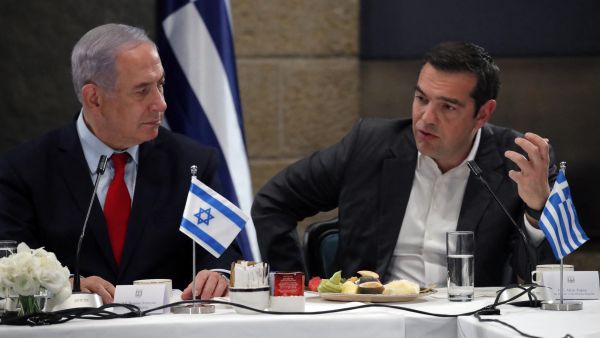ALBAWABA - As a number of Israel's longstanding friends become more adamant in their opposition to Prime Minister Benjamin Netanyahu's attack on Gaza, a significant diplomatic change is taking place in Europe.
In response to the escalating humanitarian catastrophe, Europe seems to be readjusting its relationship with Israel by urging an early ceasefire, denouncing civilian suffering, and threatening penalties.
The United Kingdom placed penalties on people and organizations linked to the growth of settlements in the West Bank and halted free trade talks with Israel on May 20. Foreign Secretary David Lammy and Prime Minister Keir Starmer issued a warning that if Israel persisted in preventing humanitarian help from entering Gaza, more drastic measures would be used. Their announcement came after a joint proclamation with Canada and France that made it plain that these nations would no longer stand by and watch Israel's conduct with serious worry.
A possible route for penalties based on transgressions of international law and human rights was indicated by the European Union's decision to examine its long-standing Association Agreement with Israel, which was approved by a majority of 17 of its 27 member states. French Prime Minister François Bayrou said France, Britain, and Canada are committed to promoting the official recognition of a Palestinian state, while the Spanish parliament accepted study of a motion to prohibit military shipments to Israel.
These measures represent a turning point, even if they were delayed and do not yet qualify Israel's actions in Gaza as racial cleansing or genocide. Many of these same nations supported Israel unwaveringly for decades, often insulating it from international scrutiny. Additionally, they often rejected criticism of Israel as antisemitic. The current shift in tone is a reflection of both the breakdown of Israel's conventional defense narrative and growing unease among Western countries at the extent of the crimes occurring in Gaza.
Israel is experiencing the effects. "We are facing the worst situation we've ever experienced… a real tsunami that is only getting worse," an Israeli Foreign Ministry source told Yedioth Ahronoth, describing the situation as a diplomatic crisis of unparalleled proportions.
Critics contend that Europe's measures are still mostly symbolic in spite of the forceful rhetoric. Effective measures and economic pressure to stop what many now describe as a campaign of collective punishment and famine in Gaza have been lacking. Europe's condemnations run the danger of being seen as nothing more than a publicity stunt to maintain credibility if there are no real repercussions.
Several factors are cited by observers as the cause of Europe's abrupt change. While the far-right Netanyahu administration continues to escalate and officials like Finance Minister Bezalel Smotrich publicly advocate for the expulsion of Palestinians, Israel's protracted military war has failed to produce strategic advances. At the same time, public sentiment across Europe has been sparked by vivid depictions of human suffering. On May 17, around half a million people protested Israel's conduct in London, the United Kingdom alone.










